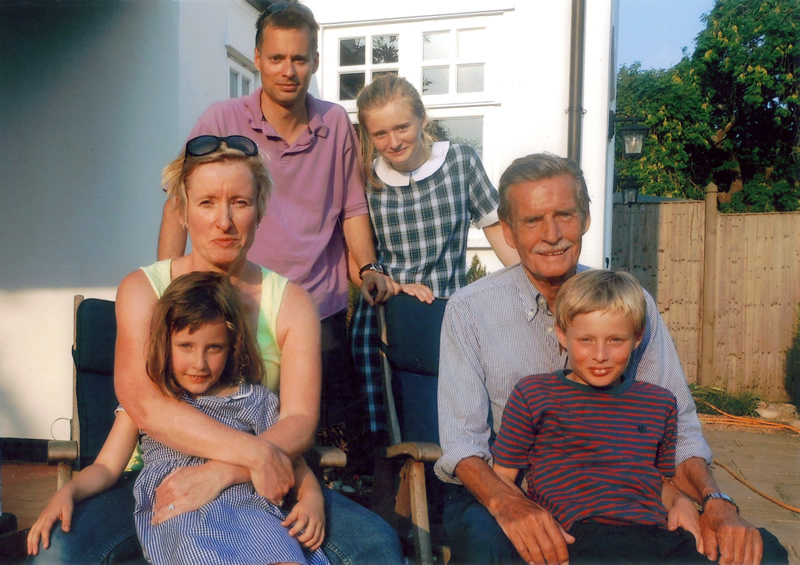From William McIlvanney's Funeral Service, 16th December 2015
Today I would like to read a poem by the American poet Emily Dickinson in memory of my Dad. I have chosen this poem for a couple of reasons. First, while my Dad was a very proud Scot, he was also someone who was acutely aware of the importance of openness towards other cultures and languages. My Dad had a confidence in his own worldview, whether political or literary, which meant he was comfortable with himself and consequently comfortable with digesting an eclectic range of opinions. Which he did - whether at the level of his literary taste or his daily papers which some of you may be surprised to learn comprised The Herald but also The Daily Telegraph, whose journalism and crossword in particular he valued. Like an athlete in training, Dad constantly tried to improve on his Personal Best crossword completion time. A polyglot, he could speak fluent French – Camus and Montaigne figured among his favourite writers - and he read Greek and Latin. As children, Liam and I would listen to his gripping storytelling after tea; most of his tales revolved around the adventures of Odysseus or Medusa and a cast of characters drawn from Greek and Roman mythology. Dad had a deep dislike of parochialism and loved the richness that travel in Europe and the States brought him. We know how much he loved Glasgow. But he also loved London, Paris, Amsterdam, New York, Berlin – which he only discovered this year – and perhaps above all other European cities, he loved Venice.
So I chose this poem partly because it reflects my Dad’s active embrace of national differences and literatures, but also because it is written by a woman. Emily Dickinson was a poet whom Dad very much admired. Dad was a huge believer in the emotional strength and intellectual power of women, as epitomised by his passion for the writing of the eighteenth-century philosopher and advocate of women’s rights, Mary Wollstonecraft. Throughout his private life also, he was surrounded by women he loved and respected, whether his mother Helen, his sister Betty and her daughters Elaine and Trish, his partner Siobhan, Siobhan’s daughter Claire, his granddaughters Elise and Esme – and the woman who helped my Dad fulfil his final desire of dying at home: Siobhan’s sister, Deirdre. Indeed, the last words my Dad ever spoke in a public forum in Scotland when he appeared at the Glasgow Film Theatre in February this year were fittingly dedicated to his mother, my gran. That’s why I have chosen Emily Dickinson’s poem ‘Because I Could Not Stop For Death’. A beautiful poem, it reflects my Dad’s undying joie de vivre yet recognition that he had lived a full life and his consequent acceptance of Death’s offer for him to stop; it also reflects my belief that his spirit remains immortalised in the body of his writing.
Siobhan McIlvanney
Because I could not stop for Death
Emily Dickinson, 1830 - 1886
Because I could not stop for Death –
He kindly stopped for me –
The Carriage held but just Ourselves –
And Immortality.
We slowly drove – He knew no haste
And I had put away
My labor and my leisure too,
For His Civility –
We passed the School, where Children strove
At Recess – in the Ring –
We passed the Fields of Gazing Grain –
We passed the Setting Sun –
Or rather – He passed us –
The Dews drew quivering and chill –
For only Gossamer, my Gown –
My Tippet – only Tulle –
We paused before a House that seemed
A Swelling of the Ground –
The Roof was scarcely visible –
The Cornice – in the Ground –
Since then – ‘tis Centuries – and yet
Feels shorter than the Day
I first surmised the Horses’ Heads
Were toward Eternity –
|



